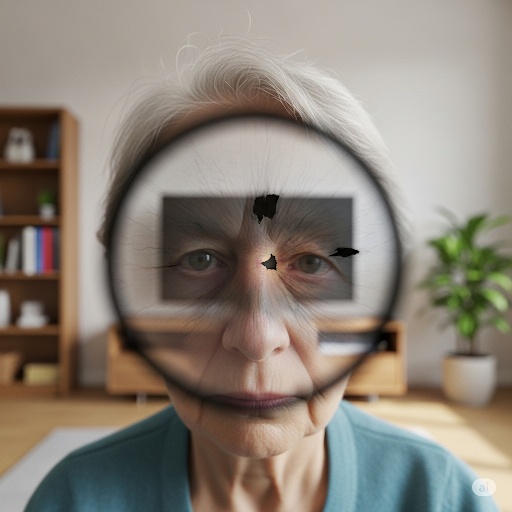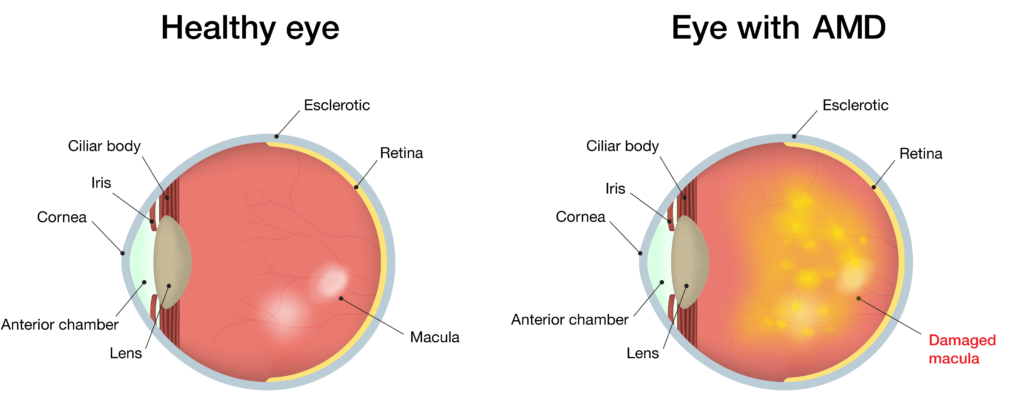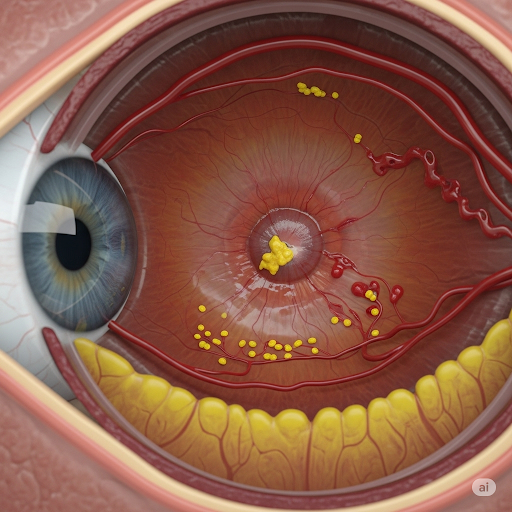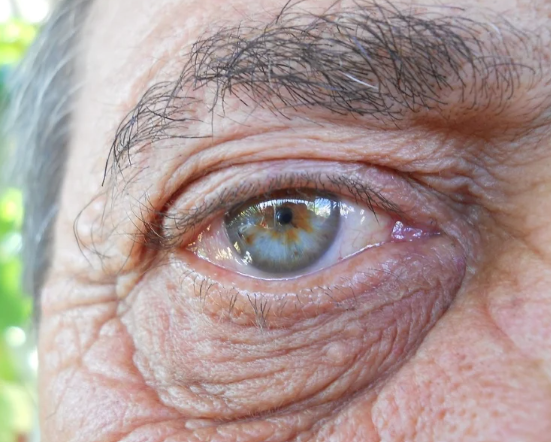
Macular Degeneration (Age-Related Macular Degeneration, AMD) is a chronic eye disease that affects the macula, the central part of the retina responsible for sharp, detailed vision. It causes progressive loss of central vision, making it difficult to read, recognize faces, or drive, while peripheral (side) vision usually remains intact. AMD mainly occurs in older adults and is a leading cause of vision loss in people over 50. There are two main types: dry AMD (gradual thinning of the macula) and wet AMD (abnormal blood vessels leaking fluid or blood under the retina).

Causes of Macular Degeneration (AMD – eye disease)
- Aging – natural wear and tear of retinal tissue; most common in people over 50.
- Genetics – family history of AMD increases risk.
- Smoking – damages blood vessels and accelerates retinal degeneration.
- High blood pressure & cardiovascular disease – poor circulation may reduce oxygen supply to the retina.
- Obesity & poor diet – diets low in antioxidants (vitamins C, E, zinc, lutein, zeaxanthin) may worsen risk.
- Excessive sunlight exposure (UV light) – may damage retinal cells.
- Race – more common in Caucasians than in African or Asian populations.
- Gender – slightly more common in women.
Symptoms of Age-Related Macular Degeneration (AMD):
Early Symptoms
- Blurred or fuzzy vision in the center of sight.
- Need for brighter light when reading or doing close work.
- Difficulty adapting to low-light conditions (like moving from sunlight to indoors).
Progressive Symptoms
- Distorted vision – straight lines appear wavy or bent (metamorphopsia).
- A dark, blurry, or blind spot in the center of vision (scotoma).
- Colors appear less bright or vivid.
- Trouble recognizing faces.
- Difficulty reading, driving, or seeing fine details.
Late / Severe Symptoms
- Large central blind spot.
- Severe loss of central vision (while side/peripheral vision usually remains normal).
- In wet AMD: sudden and rapid worsening of vision due to bleeding or fluid under the retina.
Treatment of Age-Related Macular Degeneration (AMD):
Dry AMD (most common, slower form)
- There’s no cure, but the goal is to slow down vision loss.
- Doctors often recommend the AREDS2 supplement formula — a special mix of vitamins C, E, zinc, copper, lutein, and zeaxanthin. This doesn’t restore vision but can slow progression in moderate-to-severe cases.
- A diet rich in leafy greens, fish, nuts, and colorful fruits supports the retina.
- Lifestyle changes like quitting smoking, controlling blood pressure, and protecting eyes from UV light are key.
Wet AMD (less common but faster and more severe)
- The main treatment is anti-VEGF injections (medications like ranibizumab, aflibercept, bevacizumab). These drugs stop abnormal blood vessels in the retina from leaking fluid and causing sudden vision loss.
- Sometimes laser therapy or photodynamic therapy is used to seal leaking vessels, but injections are now the standard.
- Regular eye check-ups are needed, as wet AMD can progress rapidly.

